Previously, there was a period when cooperative members numbered in the hundreds and thousands, and any individual living in the residential area where the cooperative operated was automatically called a cooperative member. When the 2012 Cooperative Law came into effect, individuals, households, and legal entities became cooperative members when they contributed charter capital. This caused the number of cooperative members to decrease significantly, but it helped the cooperative find people who were willing to stick with and contribute to the development of the unit.
Up to now, the Law on Cooperatives (amended) has been issued, cooperative members are divided into many different levels, including official members, capital-contributing associate members, and non-capital-contributing associate members. From here, cooperatives can both ensure a large number of members and attract members who are passionate about the collective economic movement.
Mr. Nguyen Hoang Pho, Director of An Ninh Tay Agricultural Cooperative (Tuy An district), who has been with the cooperative since 1979, shared: At the cooperative, the number of members has not changed since its establishment until now. At the time when every household and every person participated in the collective economy, everyone contributed to the cooperative, whether it was a buffalo, a cow, a plow, a hoe, or labor or cash. Therefore, even with adjustments in the provisions of the law, the cooperative cannot erase those initial contributions of the people. However, with the development, especially in the current integration period, if there are no timely institutional adjustments, it will be difficult to resolve conflicts and disputes in the old period, especially the issue of rights and responsibilities. When the cooperative generates profits, everyone wants to enjoy them, but when the cooperative goes bankrupt and in debt, no one wants to bear this debt. Only by clearly defining the roles of each member can we have a basis for assigning responsibility, ensuring transparency and fairness, creating motivation for sustainable development.
According to Mr. Le Thanh Lam, Chairman of the Provincial Cooperative Union, the Law on Cooperatives (amended) clearly stipulates the obligations and rights of each member. Typically, from the perspective of capital contribution to join cooperatives, we see that official members and associate members are required to contribute capital. Associate members do not contribute capital, are not obliged to contribute capital but must pay membership fees. On the contrary, official members and associate members who contribute capital are distributed income. The remaining members do not enjoy this. At the same time, official members also enjoy many other benefits corresponding to the obligations they have made such as being provided with products, services, jobs, welfare by the cooperative; being able to vote at the members' congress... The rights of the remaining members are also gradually reduced according to their obligations. Currently, there are problems that have existed for many years and have not been resolved such as outstanding debts, property division... because the provisions of the law on the rights and obligations of cooperative members are not clear, leading to a mentality of relying on the collective in the style of "no one cries over a common father". Now it is different...
MINH DUYEN
Source




![[Photo] T&T 1 and Ho Chi Minh City 1 People's Police Teams won the men's and women's team championships](https://vphoto.vietnam.vn/thumb/1200x675/vietnam/resource/IMAGE/2025/5/22/39db06ae67cb4001b7a556e8d9a56d07)
![[Photo] Prime Minister Pham Minh Chinh chairs meeting on draft Resolution of National Assembly on International Financial Center in Vietnam](https://vphoto.vietnam.vn/thumb/1200x675/vietnam/resource/IMAGE/2025/5/22/d398664ff1a140629169ea5a24e1b4d0)
![[Photo] Press delegation meeting to visit Truong Sa and DK1 Platform](https://vphoto.vietnam.vn/thumb/1200x675/vietnam/resource/IMAGE/2025/5/22/6b8d232877ec421a9e8187d83b9f8006)
![[Photo] General Secretary To Lam chairs a working session with the Central Internal Affairs Commission](https://vphoto.vietnam.vn/thumb/1200x675/vietnam/resource/IMAGE/2025/5/22/3b7790f499da45b2803d8ae253207ef1)







































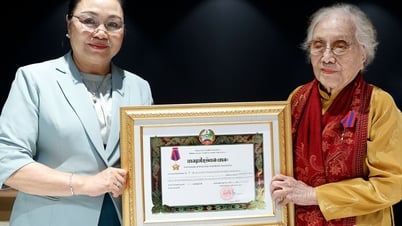

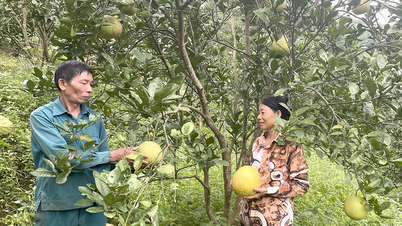














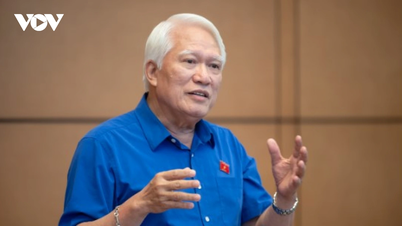









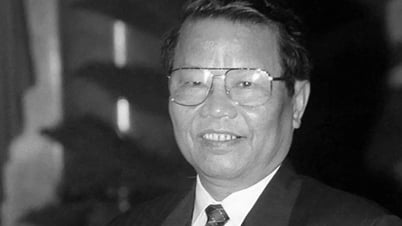












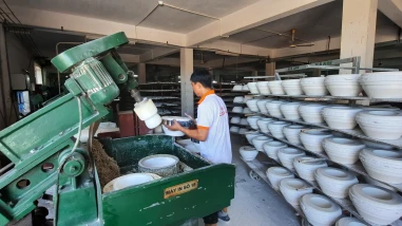







![[Podcast] Week introducing more than 500 OCOP products in Hanoi](https://vphoto.vietnam.vn/thumb/402x226/vietnam/resource/IMAGE/2025/5/22/d144aac2416744718388dbae3260e7fd)



Comment (0)